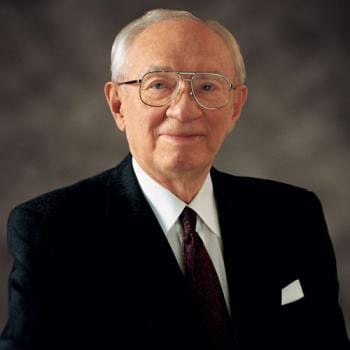
First, it’s that time of year wherein I start thinking about January, which means D&C/Church History… but mostly D&C. I always get excited when we hit D&C, because it means we’re almost to the Old Testament again. In the meantime, I have to figure out how to handle D&C here. This is the book I have read and taught the least, and I have virtually no notes to build from. It doesn’t help that the manual is organized not by section or chronologically, but thematically. I also anticipate January beginning my heaviest semester, taking four classes (one more than normal) and perhaps TA’ing a fifth.
Right now, I’m just kicking around ideas. I can write less often, and/or with a looser connection to the lesson manual. I’ve considered returning to podcast format, but casually, unscripted, unlike my Old Testament podcasts. I could simply talk my way through for that week. I might be able to recruit a few other people to rotate through and have conversations with about the lesson.
However, my stats show a spike on Sundays, which I gather means that most people end up reading what I write while in Church, not the day before, prepping a lesson or something. In the comments or Facebook or email (benjaminthescribeblog AT gmail), let me know if a podcast might work for you. I doubt I could provide transcripts.
I want to focus almost entirely on 3Ne 6:12 today.
12 And the people began to be distinguished by ranks, according to their riches and their chances for learning; yea, some were ignorant because of their poverty, and others did receive great learning because of their riches. 13 Some were lifted up in pride, and others were exceedingly humble; some did return railing for railing, while others would receive railing and persecution and all manner of afflictions, and would not turn and revile again, but were humble and penitent before God. 14 And thus there became a great inequality in all the land, insomuch that the church began to be broken up;
How do we ensure that educational differences don’t become a stumbling block to the church or its individual members?
I have spent most of my life living in wards with stark educational splits. I grew up in a town where many active members had advanced degrees, but some hadn’t finished high school. A ward I attended for several years was similarly split, but this time I was much more aware of the differences. I heard stories of embarrassing gaffes, faux-pas, or insensitive comments leading to inactivity. I witnessed several uncomfortably educational situations. One man included in his Sunday testimony that he knew he didn’t need a PhD to get into heaven. My first response was a puzzled internal laugh, but then I realized, what does he see? He is a long-time African-American member with minimal education who has only lived in this ward, which is largely populated by a veritable Land’s End catalogue of (generally) young, white, multi-generational RMs getting MBAs, MDs, JDs , PhDs, and the occasional JD/PhD. He had internalized what “being a good Mormon” looked like from that ward, and he didn’t fit. How could he measure up? His testimony was important to him, and to me. Others, however, have simply slipped away quietly. On the other hand, I know of a family in a small town. Because of her advanced education, the wife has not been very welcome in the Church there, and years of this have not failed to have an effect on the family.
I suspect there are several things at play:
- Different needs- Different people can need very different things out of their local Church experience. Every ward will have a different balance, but is everyone being spiritually fed? The focus is presumably on the majority, so are the outliers being ministered to, the different needs recognized? I have struggled with this on numerous occasions. Teaching a temple prep class where the students can’t read beyond an elementary-school level. Teaching a youth class that includes several races, languages, ages (12-18!), first-time visitors but also the Stake President’s kids.
- Insensitivity or lack of awareness– We each need to be aware that others may have different needs than us, and may not share our backgrounds. Making that too obvious in a public way, even if innocent, can result in embarrassment and drive a wedge.
For me, the absolute biggest issue is this. How can I relate to people who are very different than me? I think more than gender, race, ethnicity, or nationality, education can be the biggest divider. And like the Book of Mormon passage above, education often falls along class lines. I have a strong belief in the power of community. As an introvert, though, I try to minimize my social discomfort at Church and feel some tension between that and the calling to communal ward sociality. Jesus has some words to that effect.
46 What reward do you get if you love only those who love you? Why, even tax-collectors do that! 47 And if you are friendly only to your friends, are you doing anything out of the ordinary? Even the Goyim do that!- Matthew 5:46-7, Complete Jewish Bible
So look around you. Be aware. Smile, say hello, apologize when you need to. Try to get outside your own comfort zone a little. Remember that people are different. Try to put yourself in their shoes.
As always, you can help me pay my tuition here, or you can support my work through making your regular Amazon purchases through this Amazon link. You can also get updates by email whenever a post goes up (subscription box on the right). If you friend me on Facebook, please drop me a note telling me you’re a reader. I tend not to accept friend requests from people I’m not acquainted with.












